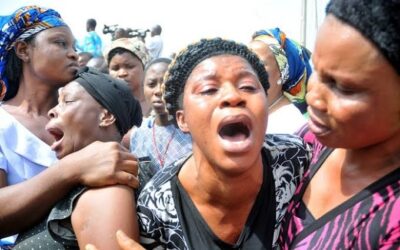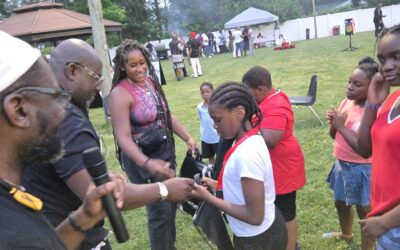Being text of the welcome address delivered by Andrew Obinna Onyearu, NAS Capoon, National Association of Seadogs, at the 9th Annual Wole Soyinka Lectures Series, held at the Channel View Hotel, Calabar, Nigeria on Friday, 14th July, 2006.
The Honourable Chairperson, special guests of honour, speakers, representatives of the diplomatic call, my Lords, Spiritual and Temporal, gentlemen of the press, distinguished ladies and gentlemen, Ahoy Seadogs.
Good morning.
It is my honour and privilege to welcome you on behalf of the National Association of Seadogs, to the 9th edition of the annual Professor Wole Soyinka series. As the publicity literature that you have seen clearly explains, this lecture is a socio-academic event of huge national and international proportions which, over the years, has attracted eminent people from all walks of life especially those keenly interested and concerned with the discussion, formulation and development of social, economic and political policies as they pertain to Nigeria. This lecture series, the 9th, is dedicated to Professor Wole Soyinka, Scholar, Playwright, social critic and, since 1986, Africa’s first Laureate in literature. Professor Soyinka, as we all know, is a social advocate of the highest distinction. This event has remained our own way of acknowledging his accomplishments, over the best part of the last 50 years, of selflessness in his untiring drive to achieve a better Nigerian nation; to enhance the literature of education and to press the agenda of social engineering within the domestic and international communities.
This lecture has taken several forms, over the last few years. In 2001, Nigeria’s leading lawyer for the last 4 decades, the late Chief Rotimi Williams gave that year’s lecture and on that occasion he spoke on “The Nigerian Nation: Prospects of Survival”. In 2002, Professor Olufemi Taiwo in that year’s event at the Savoy Hotel in London discussed “Of Intellectuals, politics and public policy making in Nigeria”. In 2003, we had the privilege of being hosted by this wonderful city, Calabar when Professor Eskor Toyo gave that year’s lecture. In 2004, Rear Admiral (retired) Ndubuisi Kanu gave that year’s lecture when he discussed “Nigeria – the Unfinished Business”. In 2005, we changed the format. We held the event in a Town Hall format at then NICON Hilton, Abuja. That year’s event was titled “Cults, Society and Impunity”. It took a different from of previous years. It entailed a more expanded discussion and involved Professor Wole Soyinka, for the first time since the inception of the series, participating directly, himself. He did it in unique and exemplary form and in doing so, illuminated the quite serious concern of cultism with the poise of a ballerina that only he could execute. The event started by the screening of a 15 minute film, first shown to the world of 29 June 2005 by Channel 4 News in the United Kingdom in which he, Professor Soyinka chronicled some of the key factual issues pertaining the culture of violence and cultism.
CB (as we fondly call him within NAS) has been the dominant and driving force at the forefront of this organisation’s growth for the last 53 years. Of all his legacies and accomplishments, our organisation will remain his most enduring to this nation. I am sure you will allow me to use this opportunity on our behalf, within this organisation and for all of you present to wish him a happy birthday, just slightly in arrears, with a prayer that God will grant him many more days to continue to influence us and the society at large with the vision, wisdom and knowledge that we have come to associate with him all these years. Professor Soyinka was 72 years old yesterday, 13 July 2006.
I turn now to the subject of today’s event. We have chosen the subject of Darfur because the tragedy of that area of Africa demonstrates circumstances that we have described as “the shadow of our conscience”. In a Press Release we put out carried by, amongst others, the Internet media and Guardian of 4 June 2006, we joined a substantial number of the people in the concerned world in visiting this extremely disturbing situation. For the benefit of those with peripheral appreciation of the conflict in Darfur, Darfur is a region in Western Sudan, the size of France. It is populated by approximately 7 million people. A little over 50% of that population are black Africans, the rest are of Arabic extraction. That region has been, for decades, afflicted by sever under development but previously, there was a history of peaceful co-existence. Despite the colour differences, they inter-married and often one group was indistinguishable from another. The drought in the 80’s severely exacerbated the regions under development, but worse was to follow, sadly compounded by the Government of the day. Our appreciation of these circumstances is encapsulated in that commentary which we do not feel would be necessary to repeat.
Darfur does not even represent a throwback to centuries before. It is a manifestation of the highest form of savagery occurring right in front of our eyes. At the same time, those of us more privileged than the inhabitants of that region allow ourselves to be overwhelmed by problems that will constitute pleasures to those whose fate and circumstances we have the misfortune of discussing. The fact that it exists in any form and constitutes the subject of discussion in the gathering of individuals such as us is a huge indictment of the collective ability of Africans as a whole and even greater indictment of those involved in relationships with African countries and the politics of Africa. The circumstances constitute a disgrace to mankind and one which every right thinking individual, organisation or Government must profess to eliminate.
There has been considerable dialogue about Darfur since the inception of the problem. The proposed solutions are circuitous and largely ineffective, principally because those with the clout and ability to ensure that this problem is despatched to the realms of the unpleasant beyond where it belongs have not considered it sufficient enough a priority. Speaking in London on 29 June 2006, the United Nations Secretary General, Kofi Annan described the single biggest feature of inability to resolve this conflict as a lack of political will. On that occasion, he observed
“a certain political will is required for action – I don’t think that we have the kind of political will that is required to drive things home”.
He further observed that:-
“I think the African leaders from North to South, East and West will have to work collectively with the Sudanese government to convince them that it is in their interest to incorporate with the international community”.
As we discussed, lives continue to be lost and in all circumstances, unnecessarily. We as an organisation have lent our small voice to the substantial clamour and campaign to bring this tragedy to a halt. Darfur is a genocide that we can stop. We call upon our individual African Governments, the African union and United Nation to rise to this extremely desirable challenge to bringing peace to this region. Peace for Darfur represents a critical process in the building of a new Sudan, divested of all its religious, cultural and ethnic fragmentation. It is crucial that we look beyond our immediate realms in order to address this extremely unpleasant situation.
Andrew Obinna Onyearu
NAS Capoon
National Association of Seadogs



